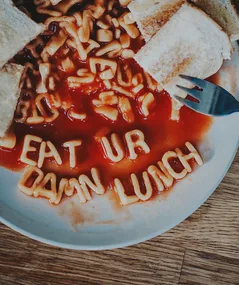There’s nothing more surprising – and delightful – than a young child who not only says hello, unprompted, but also uses your name and (gasp) asks how you are.
It’s a rare treat but when it does happen, no matter what your views on etiquette, you can’t help but be impressed. You’re also more likely to remember that child, invite them over more often, and offer them the largest slice of cake.
Yet many parents today consider manners ‘quaint’ and outdated. A soccer coach I know refuses to make his team shake hands at the end of each match because, “If it doesn’t come naturally, it shouldn’t be forced.” Another parent says that etiquette is a way of disempowering children, turning them into doormats.
This change in attitudes means that, increasingly, children have gone from being ‘seen and not heard’ to having free reign, sometimes being as loud and disruptive as they like. And this concerns child experts including registered psychologist Beulah Warren, who lays the blame firmly on the grown-ups.
“Society sets the tone for courtesy and, sadly, manners are becoming less of a priority today between adults,” he says. “Just look at our roads! If we don’t consider it important then there is no way we are going to help our children understand that it’s important.”
WHAT’S THE POINT?
So why are manners still important in this day and age? Manners are all about developing awareness, respect and empathy, and learning how to treat others with kindness, writes etiquette expert Sheryl Eberly in 365 Manners Kids Should Know: Games, Activities, and other Fun Ways to Help Children and Teens Learn Etiquette.
“Learning good manners will give your child essential tools for life. Your child will also gain the confidence that comes from knowing the right thing to do. No-one wants to be clueless.”
While it’s hard work teaching kids their p’s and q’s over and over (and over!), it actually makes their life easier and more fulfilling down the track: studies suggest that children who practise kindness are more popular with their peers, which reduces the likelihood of being bullied. Other findings have established a link between popularity at school and higher earnings later in life, and between considerate behaviour and academic success.
“You’re setting your child up to have better relationships with the wider world,” explains Vera Auerbach, clinical psychologist at Gymea Lily Psychotherapy Centre. “They are able to fit into society and their peer group, so when they get to school and have to work in groups and share and deal with conflicts, hopefully by having some of those skills, they will be better at getting through all of that.”
They’ll also be welcome at every door, and that’s not the same thing as being a doormat, Beulah insists. “If a child fits in easily, they always get invited over because they’re such a joy. It’s part of the aura around that child and it means they’re liked by people, young and old. It’s not manipulative. If it’s taught from the start then it happens naturally and it becomes self-rewarding.”

Experts say manners make for a kinder, more caring child.
(Credit: Getty Images)FOSTERING KINDNESS
Here are some key ideas in helping your child become a kinder, and most likely a happier, human being:
Be a polite parent
Manners aren’t just for kids or special occasions. If you want your child to get in the habit of using them, you need to model good manners every day. It’s as simple as greeting family in the morning, thanking them when they do something for you, and offering elderly people a seat on the bus. Be sure to start early, adds Beulah. “So from when they’re born, you can say, ‘This is Grandma’, and then lean over and give her a hug or kiss. That’s easily transferable to the child and once they’re a toddler you can insist they give Nanna a hug or kiss, too. You demonstrate and then ask the child to do it.”
From “Ta” to “Thank you, Mummy!”
Kids don’t learn entire sentences straightaway, so don’t expect too much too soon says Sheryl Eberly. “Teach your child a few manners — and when he’s mastered those, start on a few more. Lay a foundation and begin to build on it. Expect basic manners from a five-year-old, and more from a ten-year-old. You’ll be amazed how many compliments you’ll get by the time your child reaches adolescence.”
Be flexible but firm
Gone are the days when kids addressed adults by their surnames or were forced to kiss every guest at your dinner party, and that’s fine, says Vera. “It’s okay to take into account how children feel about some of these things. Do they really want a sloppy kiss from Grandfather, for instance?” This is where choices come in. Perhaps they could shake hands, hug or simply say hello. However, stick to your guns on what you consider to be the important stuff, says Vera: “There should be a definite line about not lying, teasing, bragging, that sort of thing.”
Reinforce, reinforce, reinforce!
It won’t happen overnight and it won’t happen every single time, but with a bit of hard work it will eventually stick. “In the toddler years you have to be on your feet, helping your child with their social skills, not sitting back,” says Vera, “because toddlers will just rip a toy from another kid. You have to say, ‘Stop, give it back, please. You need to ask to have a turn.’ It’s instilling morals. You might have to say a hundred times, ‘Say hello to Mrs Smith, say goodbye, say thank you’, but it’s worth it.” Try putting a list of good manners on the fridge and reward your child each time they use them.
Look below the surface
If your child is not using his manners, consider whether there’s some underlying reason, rather than simply labelling it as bad behaviour. Perhaps your child is just tired or having a bad day, says Beulah, or maybe they’re chronically shy.
“Some children who are socially inhibited find it very difficult,” she says. It’s vital you help them through this. “Say to the child, ‘You don’t have to talk (or hug), but you do have to look them in the eye and, at the very least, we expect you to say hello.'” Don’t make a fuss or label the child as ‘shy’, simply give plenty of forewarning, explain the value in being polite and offer a reward for doing so. “It’s not bribery,” she says, “We are trying to teach some piece of behaviour that may not feel all that comfortable for the child.” Nor is it fake, she adds quickly. “It’s basic courtesy.”
Also keep in mind that some children (such as those who are on the autism spectrum) find making eye contact stressful and will do anything to avoid it – rather than it being a matter of them ‘being rude’ when they don’t look others in the eye. That’s not to say that, over time, these kids can’t learn that this is an appropriate social interaction they should practise.
MINI MANNERS
Each child is different and develops at their own pace but, as a rough rule, here are some courtesies they can learn by around the age of three.
• To say “hello” when they meet someone and “goodbye” when they leave
• To say “please” and “thank you” (or “ta”)
• To take turns with toys and other objects
• To say “sorry” if they’ve hurt someone
• To say “excuse me” instead of interrupting
• To use their words to express how they’re feeling, when prompted
• To stay seated during a meal and use they’re utensils
WATCH: This toddler just wants his mum to know he loves her. Continues after video …
WHAT ABOUT THEIR FRIENDS?
Is it ever okay to prompt other people’s children? Absolutely, says Beulah, though how you go about it depends on the circumstances.
“If you’re looking after somebody else’s children you have the right to say, ‘In this house we say please and thank you.'”
At a public park or a friend’s birthday party, she suggests a less authoritative approach. “Children don’t want to hear about what they’re doing wrong, they want to be told what they should be doing right. If you say, ‘It’s lovely if you say thank you,’ almost always the child will say thank you.”
And when kids are being outright rude, such as running around an office or restaurant screaming, it’s important that someone pulls them up. “If it’s your office, for instance, then you’re in charge, so you can say to the parents, ‘I’m sorry but that behaviour is not appropriate in this room, can one of you deal with it please?'”

